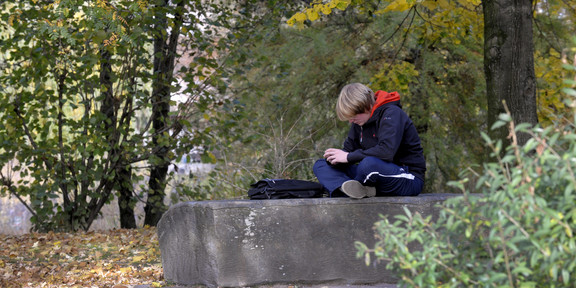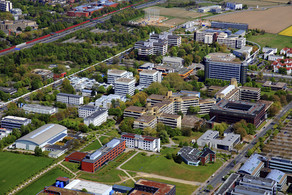How Lonely Young People in North Rhine-Westphalia Feel
- TU News

Loneliness is widespread among adolescents in NRW (North Rhine-Westphalia) and has presumably intensified due to the COVID-19 pandemic. This is the conclusion of a study by researchers from the University Alliance Ruhr in Bochum, Dortmund, and Duisburg-Essen, conducted on behalf of the NRW State Chancellery and led by psychologist Prof. Maike Luhmann from Ruhr University Bochum. On 24 November, the results were presented by Minister President Hendrik Wüst and Prof. Luhmann at the Loneliness Forum in Berlin. Prof. Ricarda Steinmayr from the Institute of Psychology at TU Dortmund University also contributed to the study.
The study incorporated results from two samples. The first comprised 958 adolescents and young adults between the ages of 16 and 20, who were specifically surveyed online for the study. The second sample consisted of 1,243 eighth-graders participating in another study, the so-called GLÜCK (HAPPINESS) study, which is funded by the Mercator Research Center Ruhr and whose spokesperson is TU Professor Ricarda Steinmayr.
According to the study, the proportion of severely lonely adolescents, depending on gender and form of loneliness, varies between 16.3 % and 18.5 % among older adolescents and young adults, while for younger adolescents, it ranges from 3.7 % to 11.1 %. When including those who feel moderately lonely, the figures rise to 51.2 % to 78 % among older adolescents and 27% to 68.2% among younger adolescents. Studies with adolescents and young adults conducted before the COVID-19 pandemic suggest that these values were lower before the pandemic.
“The figures indicate that today more adolescents and young adults are affected by loneliness than before the pandemic. Loneliness is an experience that is part of life, as can be seen from the figures for moderate loneliness. However, many cannot overcome strong loneliness on their own, and that’s why I’m concerned about the increased proportion of the severely lonely among older adolescents and young adults,” says Prof. Maike Luhmann. The results also show that adolescents with financial problems are more affected by loneliness. Lonely young people spend less time with their friends or engaging in sports activities and more time on solitary media use.
Recommendations for action and concrete measures
The authors of the study recommend a targeted campaign that raises awareness about loneliness, provides information on coping strategies, and reduces stigma. In addition, they advise, among other things, paying particular attention to risk groups, including households with financial constraints or unemployed young people. Leisure activities and whereabouts should be designed to facilitate encounters. Measures to strengthen social and emotional competencies, as well as initiatives against discrimination and prejudices – and for tolerance and integration – could also be helpful.



